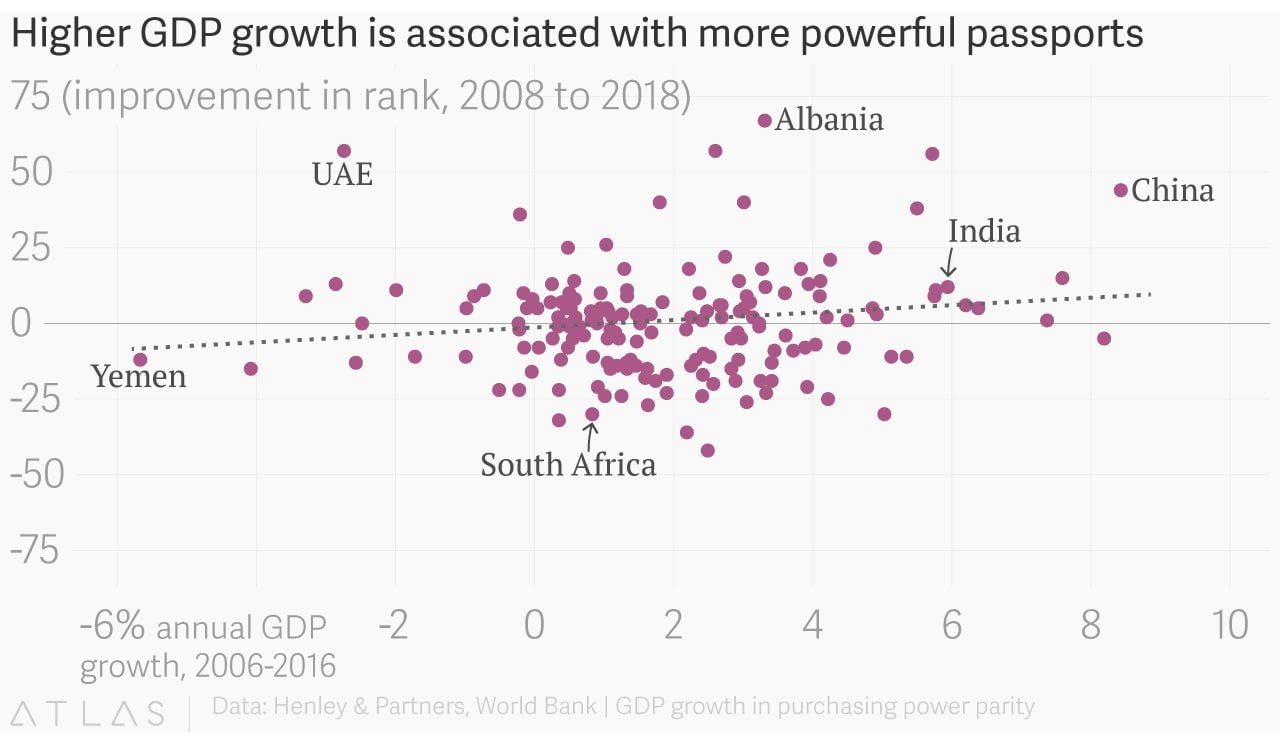These passports have become more powerful in 2018
The title of the world’s most powerful passport changes hands week to week. One moment Germany reigns supreme, then suddenly Japan edges through to clinch the top spot.


The title of the world’s most powerful passport changes hands week to week. One moment Germany reigns supreme, then suddenly Japan edges through to clinch the top spot.
The ranking is based on the number of countries a passport holder can enter without a visa or for which they can obtain a visa on arrival. While the focus is usually on the passports at the top of the rankings, there is also interesting movement among the middle and bottom.
China ranked 75th in the 2008 Henley Passport Index, the annual ranking by citizenship planning firm Henley and Partners. China now has climbed 44 places to rank 118th. And while China’s rise is impressive, it’s small European countries that have made the biggest strides.
Even the idea of the EU is a good thing
In 2008, Albania ranked 155th and has jumped 67 places in just 10 years. The jump is down to the fact that Albania is an official candidate to join the EU. Albania applied to join the bloc in 2008 and was granted visa-free access to the Schengen area in 2010.
While negotiations are also ongoing on when Bosnia and Herzegovina will become an EU member, the candidacy alone has also helped the country’s ranking. In 2008, Bosnia and Herzegovina ranked 143rd on the index, but jumped to 86th after it was given visa-free access to the Schengen area in 2010.
Ebola has hurt Sierra Leone
Sierra Leone has tumbled the furthest down. In 2008, it ranked 90th and has now dropped to 132nd. The drop is partly due to the Ebola epidemic that hit the African nation in 2014. The outbreak, which affected Guinea and Liberia as well, killed 11,300 people in all three countries from 2014 to 2016. Soon after the epidemic took hold, countries such as Australia, Canada, and the US, issued some form of a visa restrictions against Sierra Leone.
A rising GDP is good
There’s a slight relationship between GDP growth and the passports that have gotten more or less powerful. While Yemen went further down the ranking following the outbreak of a devastating civil war and a shrinking of its GDP, China’s growth in GDP was correlated with a higher ranking in the index.
